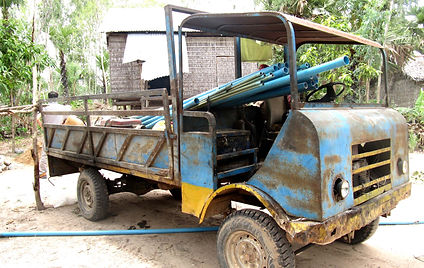



Lyn Riht




THE COW BANK
The Cow Bank is a simple concept. Villagers who are unable to deal in cash through lack of education or understanding receive a cow. The family is responsible for taking care of it and mating it with another cow. In the meantime, the cow provides labour and manure to improve subsistence farming productivity.
In the long-term, animal banks significantly raise incomes for rural families. Specifically, in an age when the poor are finding it more difficult to afford basic food staples, thriving family garden plots can mean the difference between good health and serious malnutrition.
When cows multiply, it also means that villagers will be able to sell the cow for cash and repay their debts.
Like traditional microfinance schemes, Cow Banks grow without additional cost.
STORY OF LYN RIHT
Lyn Riht was only 33 years old when she was widowed. Her late husband worked as a rice farmer.
She suddenly found herself with US$250 in debt and three children between the ages of 13 years old and 6 years old to feed and put through school.
Her children were starving and debt collectors were unsympathetic to her situation. She was at a loss for options. It was a dark time in her life, with no one to turn to.
One day, upon the advice of some ladies from the village, she approached Love Cambodia’s community-based officers for help.
She signed up with the Cow Bank and also received some interim food supply for her and her family’s daily needs.
Today, seven years later, Lyn Riht has repaid her debts and owns about seven cows. She also has a thriving backyard with more than enough vegetables to feed her family and share with her neighbours.
Her eldest son is learning to be a duck farmer and her second son works as a daily rated worker. Her youngest son is still in school.
SEED FINANCE
Love Cambodia provides initial capital as seed money which is intended to improve the living conditions and prospects of poor families by providing access to financial resources. Seed financing is primarily achieved through the implementation of a community-managed loan scheme at affordable interest rates. This gives poor families a chance to start and sustain income - generating activities such as the purchase of rice seedlings, vegetable and livestock farming and small businesses.


